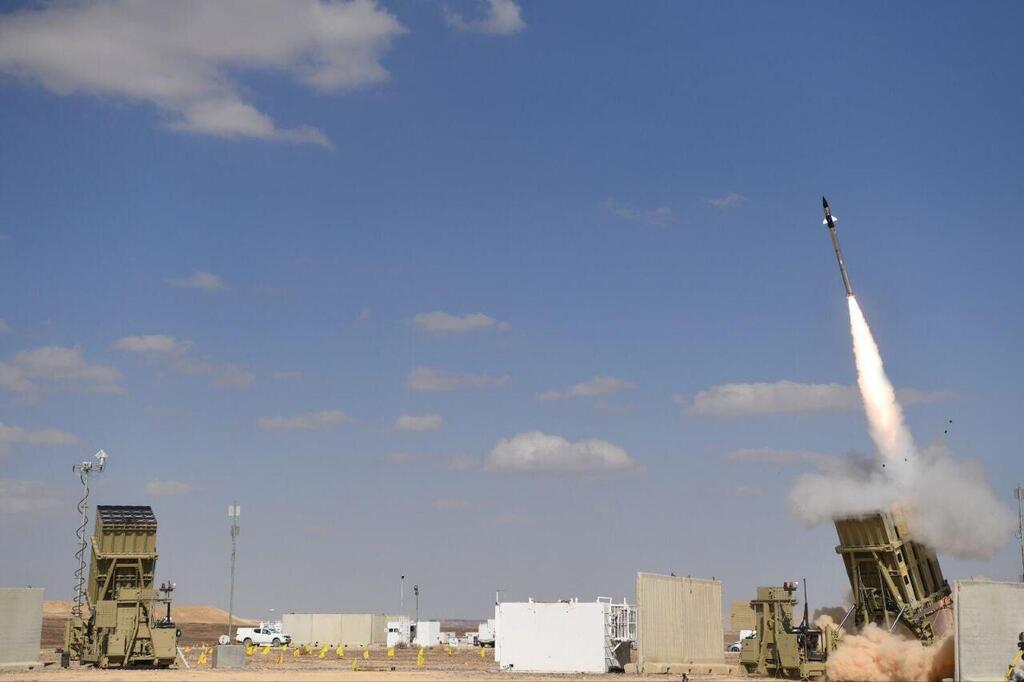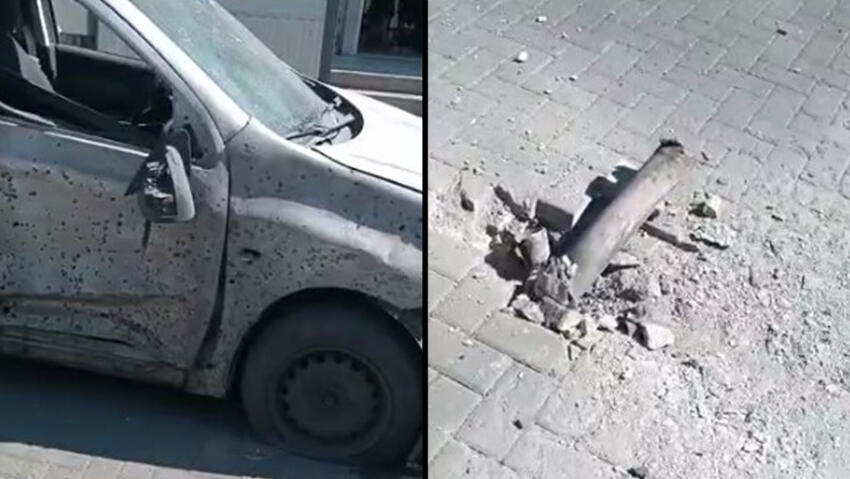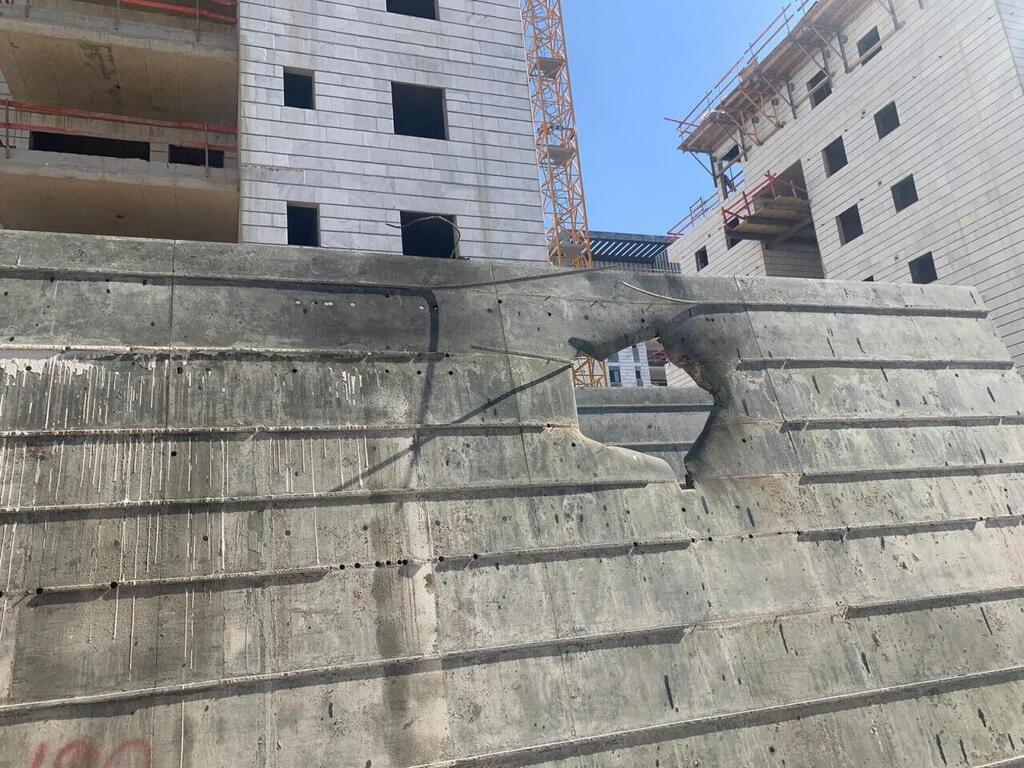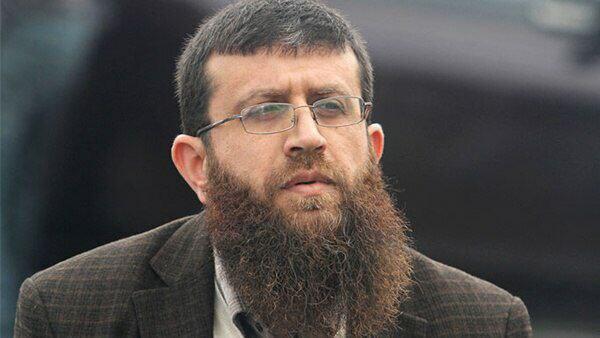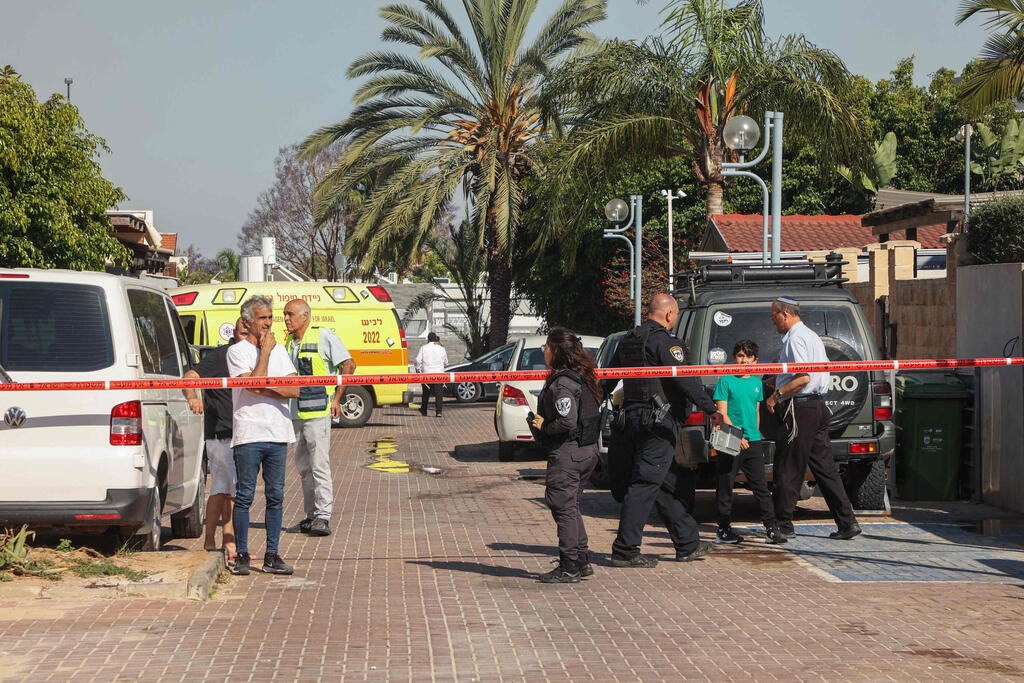Getting your Trinity Audio player ready...
The scene of a crash of rocket fired from Gaza, Tuesday
(Video: Roee Idan)
Israeli citizens have learned to count on the protective umbrella of the Iron Dome to defend them from enemy rockets in times of cross-border strife, but the air defense system's growing fail rate in intercepting incoming threats has raised concern among the Israeli military's High Command.
Other stories:
Palestinian terrorist factions fired a heavy barrage of 22 rockets into southern Israel on Tuesday afternoon.
Six of these projectiles targeted populated areas, and while four rockets were successfully shot down by Iron Dome, two crashed within residential areas in the southern city of Sderot, causing several injuries and property damage. All other sixteen rockets crashed in unpopulated areas, which the system is programmed to ignore.
At 67%, the unusually high leakage rate prompted the Israel Defense Forces (IDF) to launch a probe into why an otherwise reliable air defense system, which routinely boasts a success rate in the high nineties, has exhibited such a significant backslide in performance, especially considering the attack from Gaza occurred in broad daylight with high visibility and prior intelligence.
For comparison, in Israel's last cross-border bout with the Palestinian Islamic Jihad (PIJ) in the Gaza Strip last summer, during which some 1,100 rockets were fired onto Israeli soil, the system successfully intercepted 96% of incoming threats — the highest such figure recorded in an operational setting to date.
The system has also recorded an abnormally high failure rate during last month's rocket attack on northern Israel.
Thirty-four rockets were fired from Lebanon, and the system was expected to intercept 28 rockets while allowing an additional six to fall in open areas. However, the system failed to intercept three rockets, a 92% success rate.
Tuesday's attack followed shortly after the IDF launched artillery fire in response to a previous rocket barrage from the Palestinian enclave.
The initial attack followed threats of retaliation by the PIJ for the death of Khader Adnan, 45, a commander of its West Bank arm who was found unconscious in his prison cell early Tuesday and was later pronounced dead at the hospital after an 86-day hunger strike.
The IDF instructed residents of Gaza border communities to shelter in place amid the cross-border fire exchanges. The order was removed about an hour later.
A collective of Gaza terrorist factions claimed responsibility for the attack and added that "this is a first response" for the death of Adnan.
"We will remain committed to our fallen and our prisoners, and this issue will always remain a top priority," the group said in a statement. "We warn the enemy that any foolish actions they may take will not go unanswered, the resistance is fully prepared."
One of the rockets crashed at a construction site in Sderot. A Chinese foreign worker was severely wounded and another two people suffered light injuries from shrapnel.
The Chinese national was taken to Barzilai Medical Center in Ashkelon where his condition later improved and was considered moderate.
Several parking vehicles were damaged by shrapnel. Magen David Adom ambulance service reported that several people suffered from shock, and a 49-year-old woman was lightly injured when she slipped and fell on the way to the bomb shelter.





